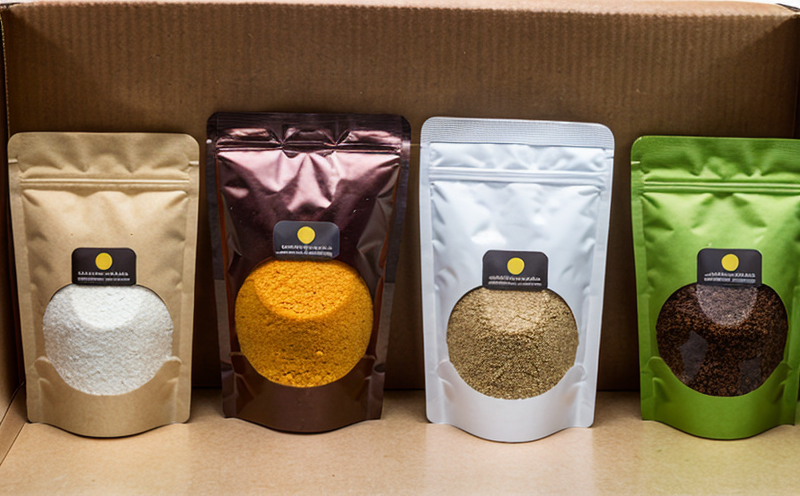Heat Seal Strength Testing in Food Contact Materials
In consumer product and food safety testing, ensuring that materials used in packaging meet regulatory standards is paramount. Heat seal strength testing specifically examines the integrity of heat seals in food contact materials (FCMs). This test evaluates whether the heat-sealed joints are strong enough to withstand the stresses they will encounter during processing, storage, and transportation.
The importance of this test cannot be overstated, as weak seals can lead to contamination risks or compromised product integrity. The process involves subjecting a sample to controlled heating and cooling cycles until it fails. This failure point provides critical data on the seal's strength and durability.
Understanding the heat seal strength is essential for several reasons:
- To ensure food safety by preventing leaks that could lead to contamination
- To maintain product quality throughout its lifecycle
- To comply with international standards and regulations, such as ISO 11605 or FDA requirements
Testing procedures are meticulously designed to replicate real-world conditions. Specimens are typically cut from production batches and subjected to controlled heating and cooling cycles. The test apparatus includes specialized chambers capable of maintaining precise temperature profiles.
The testing process involves several critical steps:
- Preparation: Samples are prepared according to the specified protocol, ensuring that they accurately represent the production batch.
- Sealing: The sample is sealed using a standardized procedure mimicking real-world conditions.
- Testing: Specimens are subjected to controlled temperature and humidity cycles until failure occurs. This allows for precise measurement of seal strength.
The results provide valuable insights into the performance characteristics of FCMs, aiding in process optimization and ensuring compliance with regulatory standards.
Applied Standards
| Standard | Description |
|---|---|
| ASTM D1938-22 | This standard specifies the procedure for determining the heat seal strength of films used in packaging. |
| ISO 11605:2007 | An international standard for testing heat seals on flexible packages containing food or pharmaceutical products. |
Why Choose This Test
The heat seal strength test is crucial because it directly impacts the safety and quality of packaged products. By ensuring that seals are robust enough to withstand various environmental conditions, this test helps prevent contamination and maintains product integrity.
A robust heat seal can significantly reduce the risk of leaks, which is particularly important for products like canned goods or sealed containers used in food packaging. This ensures that consumers receive safe and unadulterated products.
The test also plays a vital role in compliance with regulatory standards. Many jurisdictions have strict regulations regarding heat seal strength to protect public health and safety. Compliance can prevent costly legal issues and enhance brand reputation.
Moreover, the results of this testing are essential for quality control processes. They allow manufacturers to identify potential weaknesses early on, enabling them to make necessary adjustments in their production processes.
Environmental and Sustainability Contributions
- Eco-Friendly Packaging: Ensuring that heat seals are strong helps prevent leaks, which can lead to product waste. This reduces the need for reprocessing or replacement of packaging.
- Resource Efficiency: By optimizing seal strength, manufacturers can reduce material usage while maintaining product integrity, contributing to overall resource efficiency.





